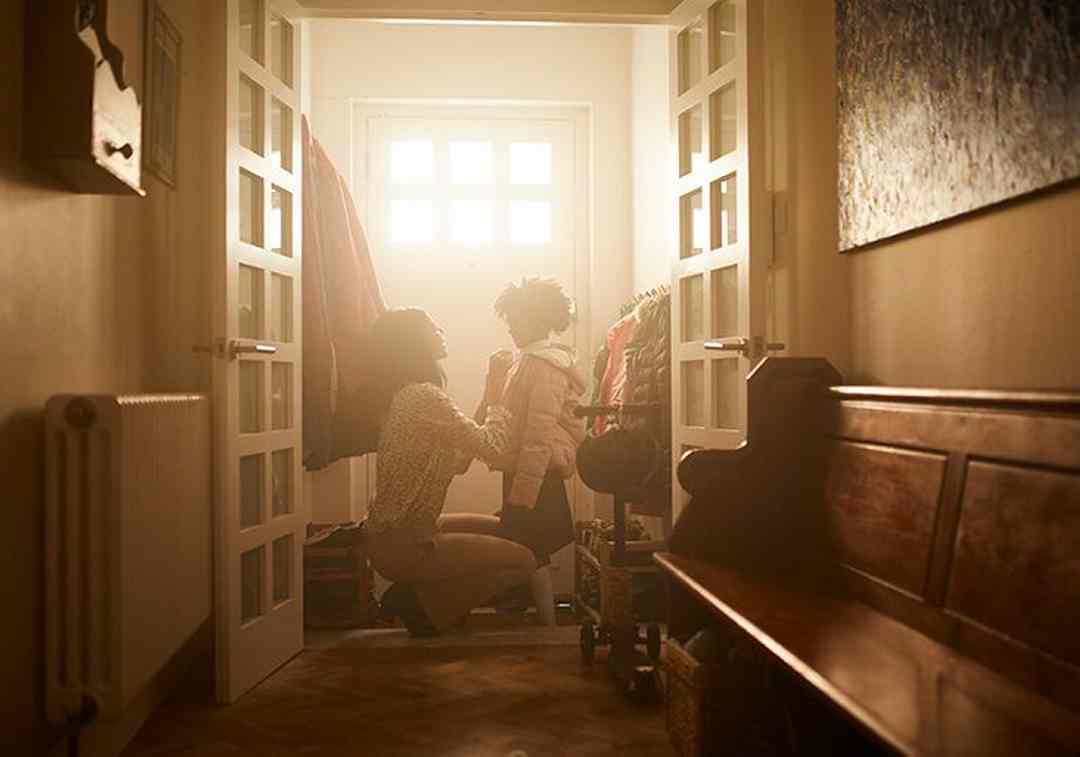Faculty anxiousness isn’t in any respect unusual, however how can mother and father assist?
Most mother and father can in all probability bear in mind coping with some degree of faculty anxiousness in their very own childhoods. Possibly it was over a take a look at you weren’t ready to take. Or it may have been a disagreement with associates that left you feeling anxious about going through them within the halls.
Regardless of the case could also be, you will have had knots in your abdomen on the considered going to highschool.
Children at the moment expertise the very same factor, however at a degree that’s doubtlessly increased than ever earlier than.
In any case, children at the moment must cope with the impacts of social media seeping into their real-life social interactions. They’re going through ever-increasing educational expectations. They’re up towards an increase in bullying.
And in a world that’s slowly reopening, but nonetheless feeling the consequences of the COVID-19 pandemic, many can also be experiencing a
lack of social abilities
and anxiousness round a return to highschool after over a yr of on-line studying.
It’s no surprise that the estimated prevalence of tension amongst youngsters ages 6 to 17 has elevated over time — from about
5.5% in 2003
to 7.1% in 2016.
Plus,
proof suggests
that youngsters and younger adults skilled a rise in anxiousness signs throughout the COVID-19 pandemic.
In line with the
Facilities for Illness Management (CDC)
, 7.1% of children between the ages of three and 17 have been recognized with anxiousness. For two% to five% of children, that interprets into anxiety-based faculty refusal — one potential results of unaddressed faculty anxiousness.
In different phrases: Faculty anxiousness isn’t in any respect unusual. However how can mother and father of children with faculty anxiousness assist?
What’s faculty anxiousness, precisely?
There are fairly a number of varieties of anxiousness that youngsters could expertise, lots of which can translate into faculty anxiousness. These embrace:
- Separation anxiousness: a worry of being separated from dwelling or one’s closest attachment figures, each of which are sometimes required when attending faculty
- Social anxiousness: anxiousness that accompanies social interactions and settings, to incorporate people who could happen in school
- Generalized anxiousness: generalized anxiousness dysfunction (GAD) can affect and embody many sides of life, together with faculty
- Obsessive-compulsive dysfunction (OCD): OCD is characterised by a necessity for excessive order, rituals, and perfectionism, all of which will be tougher to keep up at school and will contribute to social anxiousness for a scholar who’s afraid of being made enjoyable of on account of their OCD habits
- Particular phobias: a selected phobia can relate to absolutely anything, from snakes and heights, to sure meals and college
Faculty anxiousness can look totally different relying on the coed’s age group.
For preschoolers, it could have extra to do with separation anxiousness and a worry of being away from mother, dad, or different caregivers. This may increasingly lead to tantrums in school drop-off and bother enjoyable all through the day.
By elementary faculty, faculty anxiousness may very well be associated to any of the above varieties of anxiousness.
A scholar this age could not but have developed age-appropriate social abilities and will have anxiousness about faculty in consequence, or they could spend extreme time worrying about educational expectations — to the extent of not desirous to go.
Center schoolers are starting to develop a social hierarchy that can lead to a rise in bullying and numerous friendship turmoil, all of which may contribute to highschool anxiousness.
And by highschool, college students could also be juggling issues of their dwelling lives and inside their friendships and relationships, alongside mounting obligations like holding down a job and attempting to attain good grades for faculty.
In any respect these ages, faculty anxiousness could lead to faculty avoidance and refusal.
Indicators of tension about faculty
In line with the youngsters’s psychological well being advocacy group Baby Thoughts Institute, faculty anxiousness can manifest in a number of methods. Dad and mom and lecturers could discover their college students are:
- fighting paying consideration
- having a tough time sitting nonetheless
- exhibiting a heightened degree of clinginess
- turning into in poor health (or feeling in poor health) extra incessantly, which can generally be interpreted by others as “faking” feeling in poor health
- throwing tantrums or displaying different behavioral issues
- avoiding eye contact in school
- freezing or panicking when requested to reply a query in school
- fighting the varsity work (anxiousness can typically accompany studying problems)
- failing to show in homework
- conserving to themselves in school slightly than socializing with different children
For teenagers whose faculty anxiousness has endured or elevated in severity, bodily signs could seem, similar to:
- nausea
- lack of urge for food
- bother sleeping
- complications
Faculty anxiousness may contribute to indicators of melancholy and isolation within the scholar who’s struggling.
What’s inflicting my little one’s faculty anxiousness?
Some children are simply extra vulnerable to anxiousness than others. There’s a comparatively excessive price of heritability (30% to 67%) in anxiousness problems, for example, so a toddler who has a household historical past of tension could also be genetically predisposed.
Plus, a toddler who experiences different types of anxiousness is extra more likely to additionally develop faculty anxiousness.
However generally, numerous circumstances in school can improve the chance of faculty anxiousness. Some circumstances embrace:
- Bullying. A baby who’s being bullied could also be anxious about returning to the place the place their harassment has been going down.
- Interpersonal struggles. Navigating evolving friendships and relationships is simply a part of center faculty and highschool, particularly. However that doesn’t make these shifts, adjustments, fights, and breakups any simpler to deal with. For some children, friendship fallouts and relationship drama could make the considered returning to highschool anxiety-inducing.
- Educational hardships. For teenagers with studying problems (notably undiagnosed studying problems), faculty could be a place of excessive anxiousness as they wrestle to succeed. Plus, they don’t essentially perceive why doing so is so laborious.
- Different psychological or neurological well being circumstances. Circumstances like consideration deficit hyperactivity dysfunction (ADHD), melancholy, or autism spectrum dysfunction could make becoming in and succeeding in school that a lot more durable — paving the way in which for varsity anxiousness.
I’m a dad or mum: How can I assist?
Some of the vital issues mother and father of children with faculty anxiousness can do is acknowledge the indicators. When you discover your little one could also be struggling, discuss with them about it. It might be that they’ll speak in confidence to you and that collectively, yow will discover an answer.
Maybe which means creating routines to assist your little one higher put together for varsity each morning. You may look over their homework collectively, take pleasure in breakfast as a household on the desk, or provide you with a mantra you may chant collectively on the drive to highschool.
Within the weeks main as much as faculty, you might assist your little one face their faculty anxiousness by discussing all doable situations they could be troubled about and serving to them to think about how greatest to deal with these conditions earlier than they face them.
And after faculty, you might discover it’s useful to your little one so that you can be obtainable to speak in the event that they want it. Why not begin a convention of getting an after-school snack on the desk collectively whilst you focus on their day and assess collectively how all the things went?
When you can’t assist your little one to work by means of their faculty anxiousness by yourself, don’t hesitate to succeed in out for assist.
Your little one’s faculty administration could have assets obtainable, and a professional psychological well being skilled may assist your little one to determine the foundation explanation for their anxiousness and to start to work by means of it, creating instruments that may assist alongside the way in which.
I’m a instructor: How can I assist?
Academics and educators are sometimes uniquely located to acknowledge indicators of faculty anxiousness in a toddler earlier than anybody else does. That places you able to succeed in out to the kid’s mother and father early and focus on doable methods for serving to the kid to deal with their anxiousness collectively.
It’s also possible to assist by merely being a protected place for the kid to go to on days once they’re particularly struggling. Maybe you might develop a code phrase the kid may say to let you understand they’re feeling anxious.
Academics of younger youngsters could need to contemplate having a “chill-out” space of their room for teenagers to go to when they’re struggling. This may very well be so simple as a nook of the room that’s geared up with a beanbag chair and books for the kid to take a second alone.
For older children and youngsters, lecturers may also help by being a trusted grownup they will discuss with. While you discover indicators of tension, you may allow them to know you’re obtainable in the event that they’re struggling.
Being empathetic and sort may also help type a connection. Praising them while you’re in a position and letting them know you care and are there in the event that they want you’ll even be useful.
That alone may make all of the distinction on the earth.
Let’s recap
Anxiousness typically, and college anxiousness specifically, is pretty frequent for teenagers. This may increasingly show much more true within the years to come back, as children alter to a daily routine and schedule after the pandemic uprooted all that was beforehand thought-about normal.
All that to say: You and your little one are undoubtedly not alone if that is one thing they’re coping with.
Therapists, pediatricians, faculty steering counselors, and directors can all be nice assets should you’re anxious about your little one. They don’t must undergo it alone, and also you definitely don’t have to seek out methods to assist all of them by yourself.
There’s assist obtainable for you. You may set an instance in your little one of what that appears like (and the way they will do the identical) as you do.



